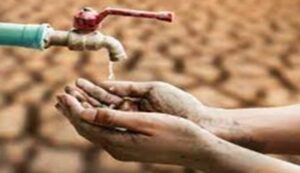Pakistan’s Skardu city is facing a growing water crisis
Skardu: In Pakistan-occupied Gilgit-Baltistan (PoGB), the city of Skardu is experiencing a worsening water crisis as the Sadpara Dam, its main water source, is unable to provide the expanding demands of the local population.
The area is in a precarious position due to old infrastructure and failed modernization attempts, according to a recent assessment that revealed the serious water shortages afflicting local inhabitants, Dawn said.

The dismal situation was recently highlighted by blogger and former public official Afzal Ali Shigri, who said that projects such as those from the Aga Khan Rural Support Programme to provide new water routes had failed because of poor planning and accusations of corruption.
In order to fulfill their basic drinking water demands, many Skardu inhabitants are now compelled to collect water from leaky hotel bowsers.
Shigri emphasized the region’s bureaucratic difficulties, saying, “Despite the community’s determination and support from local experts, bureaucratic hurdles and the ambiguous political status of Gilgit-Baltistan hinder progress.”
He continued by saying that the issue is becoming worse due to Islamabad’s lack of political representation and the slow progress of government initiatives, and local annoyance is rising as a result of the government’s failure to meet these pressing demands. According to Dawn, religious figures who have a lot of sway in the region have expressed worries about the possibility of planned demonstrations if the problem is not resolved.
In order to finish projects that have stagnated and provide sustainable water infrastructure for Skardu, the study urges quick action. The region’s growing tourism has made the need for a dependable water supply more urgent, highlighting PoGB’s larger infrastructural shortcomings.
In addition to water scarcity, PoGB has other development issues, including crumbling roads, unstable energy, and restricted access to potable water. According to Dawn, poor sanitation continues to endanger public health, and the quality of life in isolated places is further hampered by erratic telecommunications, a lack of resources for healthcare, and a lack of educational opportunities.
Skardu’s water dilemma highlights the region’s pressing need for sustainable infrastructure to serve its people in the face of mounting infrastructural difficulties, especially in the absence of significant government assistance.





